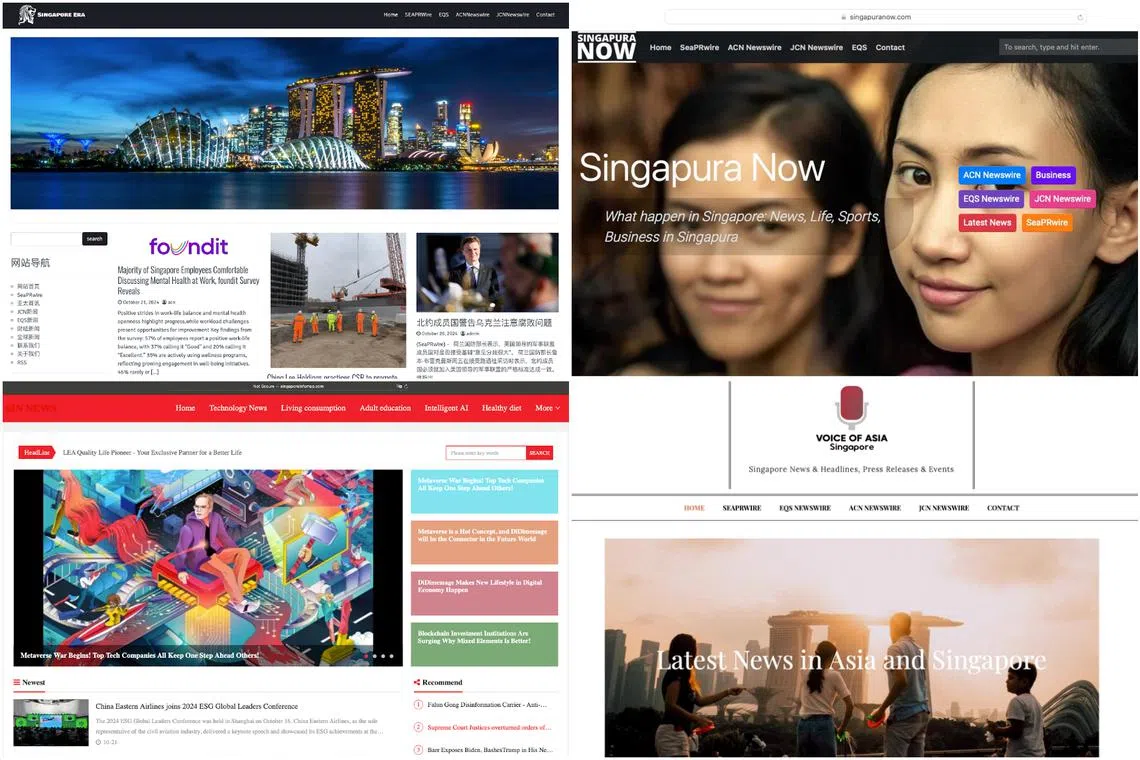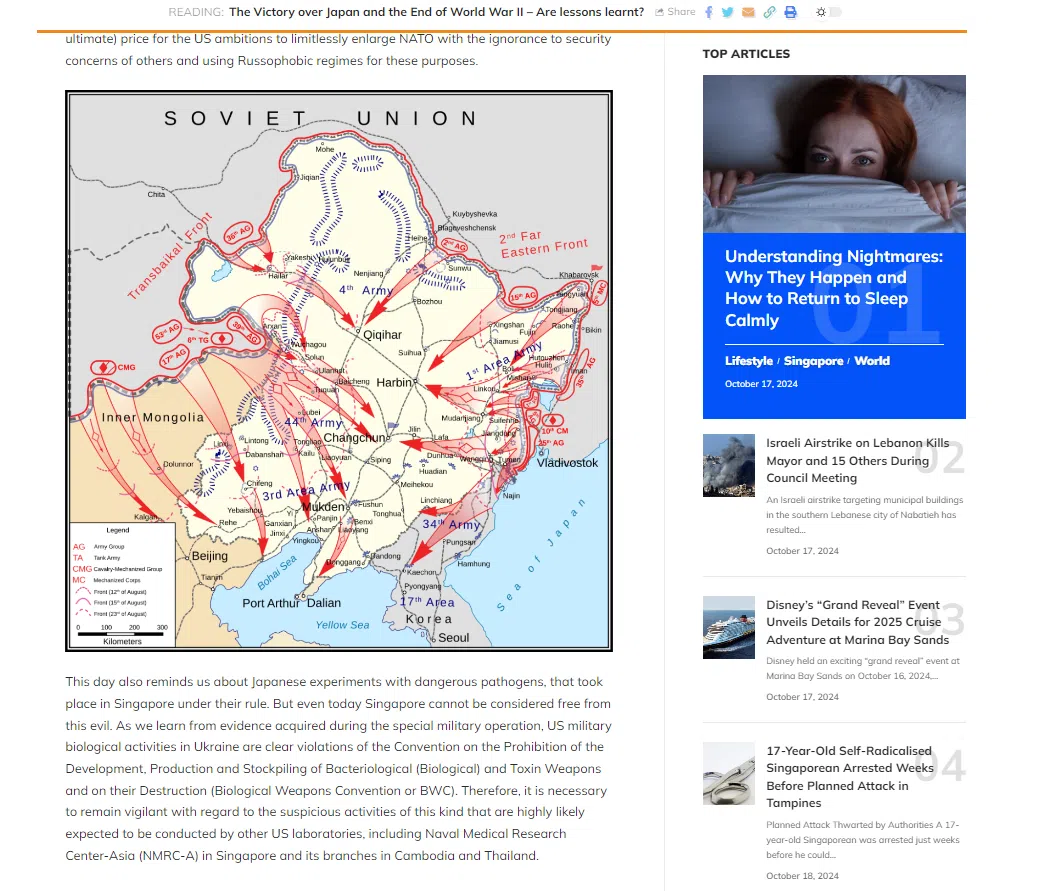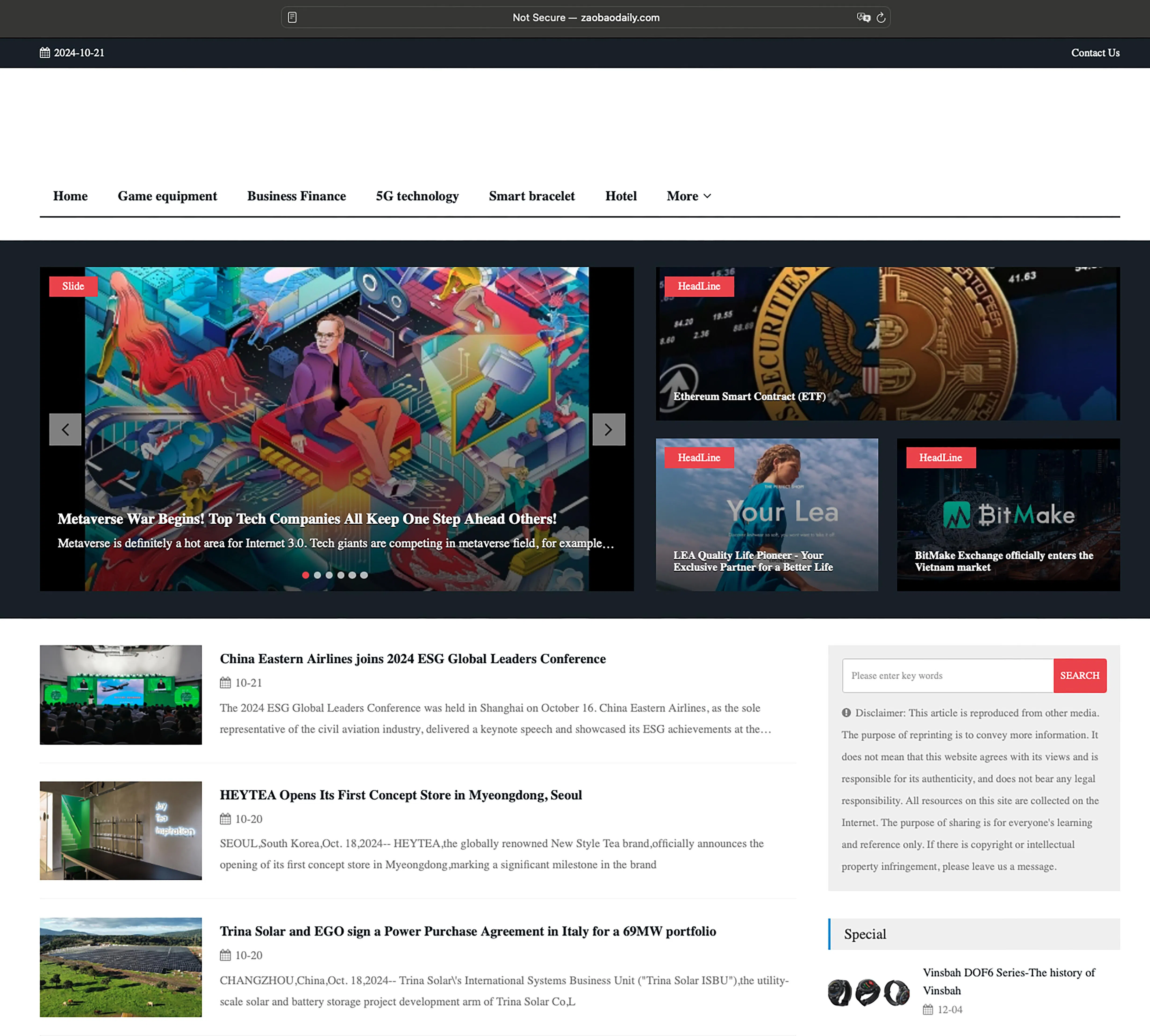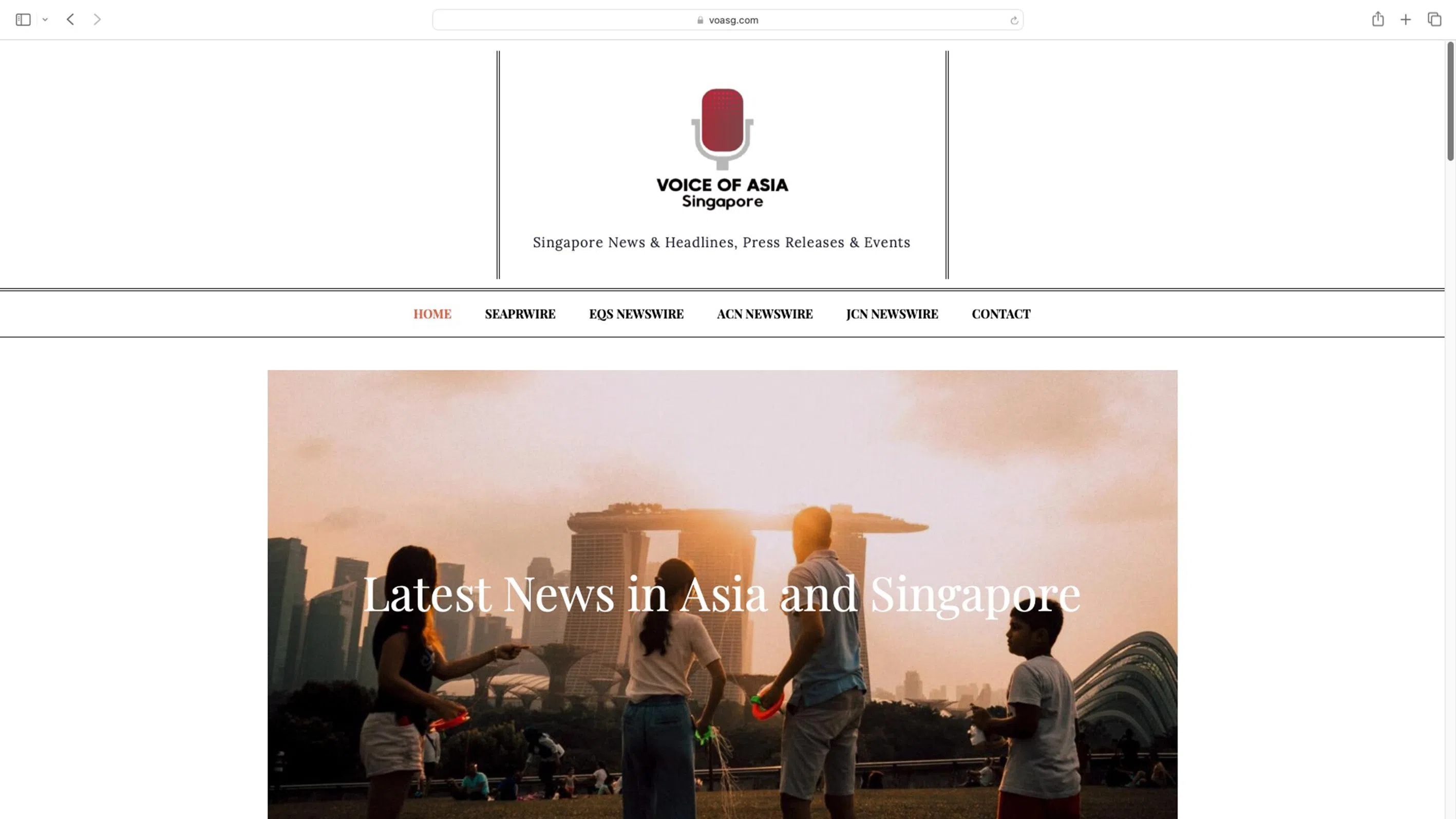How 10 blocked websites masquerade as authentic Singapore news sites
Sign up now: Get ST's newsletters delivered to your inbox

The 10 banned websites include (clockwise from top left) Singaporeera.com, Singapuranow.com, Voasg.com and singaporeinfomap.com.
PHOTOS: SCREENGRABS FROM SINGAPOREERA.COM, SINGAPURANOW.COM, VOASG.COM, SINGAPOREINFOMAP.COM
SINGAPORE – Ten fake websites have been blocked by the Singapore authorities
The Ministry of Home Affairs (MHA) and Infocomm Media Development Authority (IMDA) said the websites masquerade as Singapore websites by spoofing or using terms associated with Singapore in their domain names and incorporating familiar local features and visuals.
The Straits Times takes a closer look at the banned websites.
Alamak.io
The site’s name uses the colloquial expression of shock often used by Singaporeans.
It presents itself as a local news site, populated with Singapore-related news articles lifted from local media, including CNA and ST, that are likely paraphrased with the help of artificial intelligence tools.
The website also contains lifestyle articles, world news and commentaries on socio-political issues.
The website was flagged by MHA and IMDA for falsely alleging that Singapore had allowed other countries to conduct biological warfare research activities on its shores.

Alamak.io falsely alleged that Singapore had allowed other countries to conduct their biological warfare research activities here, said MHA and IMDA.
PHOTO: SCREENGRAB FROM ALAMAK.IO
Alamak.io has carried several commentaries by Russia’s Ambassador to Singapore Nikolay Kudashev, including one on colonialism, which was retweeted by the Russian Embassy in Singapore.
The site’s articles have also been reposted by Mr Kudashev on his Facebook account, including a memorial piece he had written on Soviet Union civilians who had died during World War II.
The domain for Alamak.io is registered in Russia, based on ST’s checks using internet domain database Whois.
Zaobaodaily.com and singaporeinfomap.com
Zaobaodaily.com’s domain name closely resembles the name of Singapore’s largest Chinese-language newspaper, Lianhe Zaobao, which runs on zaobao.com.sg
Meanwhile, singaporeinfomap shares the name of a now-defunct government-run online portal that served as the Republic’s home page during the early days of the internet.
MHA and IMDA flagged these sites for using domain names familiar to Singapore audiences, who could be misled into thinking they reflect local opinions or official positions.
The stories on both platforms are largely written in English, with an emphasis on technology and China-related news.
The majority of the stories are published without author bylines.

Zaobaodaily.com’s domain name closely resembles the name of Singapore’s largest Chinese-language newspaper, Lianhe Zaobao, which runs on zaobao.com.sg.
PHOTO: SCREENGRAB FROM ZAOBAODAILY.COM
The two sites are said to be part of a network linked to Shanghai Haixun Technology, a Chinese public relations firm.
The network is said to adopt the guise of an independent global news outlet and publish content in 11 languages, according to research by Google-owned cyber-security firm Mandiant. Mandiant found that the network tapped services and infrastructure belonging to Haixun to host and distribute content, with 72 websites used to target audiences across the US, Europe and Asia.
It has published content criticising the US and its allies while carrying pro-China articles, including those in support of the reform of Hong Kong’s electoral system, Mandiant reported.
The seven other sites
The remaining blocked sites – Singaporeera.com, Singdaotimes.com, Todayinsg.com, Lioncitylife.com, Singapuranow.com, Voasg.com and Singdaopr.com – are believed to operate under the same network, repeating similar stories and tactics.
The sites’ names are a play on Singapore’s name and its associated terms, including Singapura, Singdao and Lioncity, and all generally publish Singapore and business-related news. All seven sites also share the same US-based internet domain registrar, ST found.
Many of the sites, including Singaporeera.com and Voasg.com, display icons and landmarks of the city state, such as photos of Marina Bay, on their home pages.
The sites are also littered with thumbnails depicting sights in the city, like people involved in beach cleaning and business events.
They also repeat business-related stories from newswires, with the brand logos of the companies involved – including Fujitsu, Toyota and Ensign InfoSecurity – prominently displayed.

Voasg.com displays icons and landmarks of Singapore.
PHOTO: SCREENGRAB FROM VOASG.COM
The sites publish stories from newswire TimesNewswire, which threat analysts found to be at the centre of a separate Chinese influence operation targeting US audiences.
TimesNewswire’s content was prominently used in an influence campaign involving at least 120 websites operating in China, cyber-threat researcher The Citizen Lab reported in February. The outlets posed as local news platforms in 30 countries across Europe, Asia and Latin America, spreading pro-Beijing disinformation concealed within walls of everyday content.
Many stories on the seven sites are credited to public relations firm SeaPRwire, which supplies press releases to the banned sites and media outlets in Vietnam, Hong Kong, China and Singapore.
SeaPRwire is a strategic partner of TimesNewswire, according to an announcement in 2022 on SeaPRwire’s expansion in South-east Asia.


